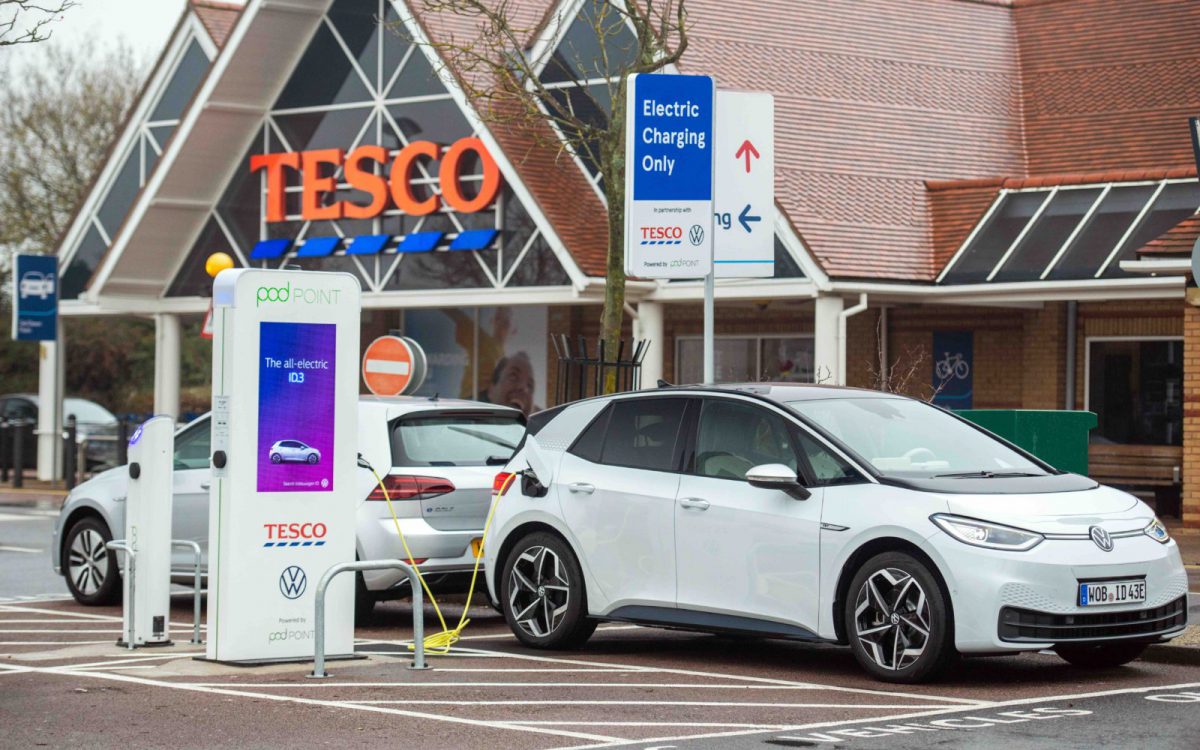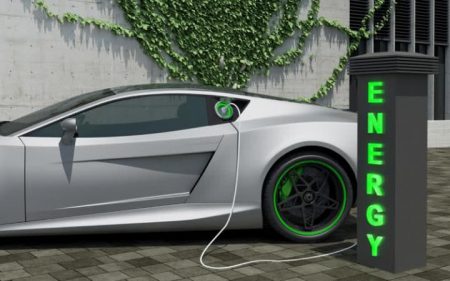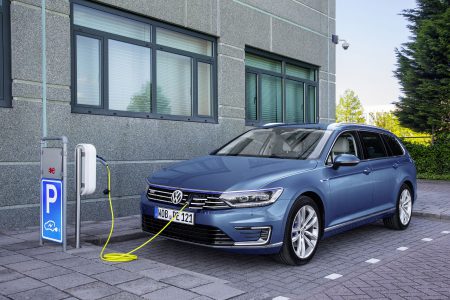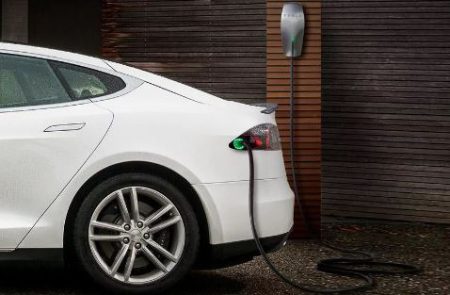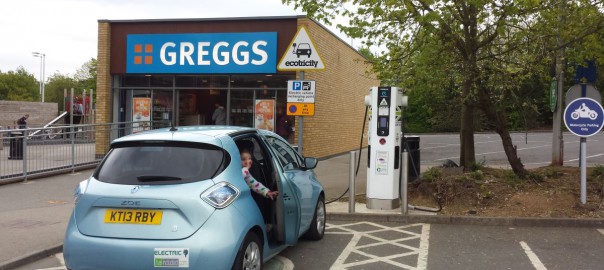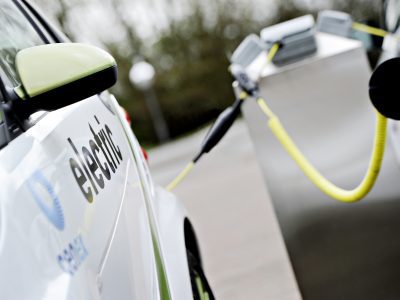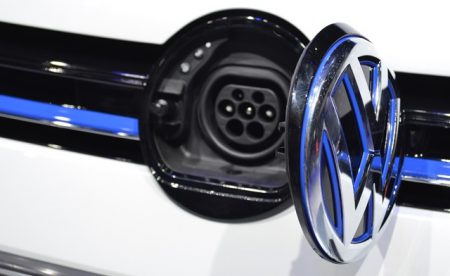Tesco, Pod Point and Volkswagen are celebrating the installation of the 600th electric vehicle (EV) charger as part of their partnership.
Installed at Tesco’s Kirkwall superstore on the remote Scottish island of Orkney, the charger marks the culmination of the programme that has seen 2,500 EV charging bays installed at stores across the UK.

The trio of companies launched the charging network in 2019 and have since provided 43,218kWh of energy.
“It is with great pride we announce that we have hit our target of providing EV charging at 600 stores across the UK,” said Jason Tarry, Tesco CEO UK & ROI.
“From Orkney all the way to Southampton customers now have the option to make sustainable choices and we’re giving them somewhere easy and convenient to charge while they shop with us.”
In March 2022, the companies hit the 500th installation milestone for the network. Having grown over the last year, it now includes 129 rapid chargers.
The network includes 7kW, 22kW and 50kW charging units, as well as Pod Point now installing the retailer’s first set of 75kW charging units as part of the next phase of rollout.
From this month, there will be 75kW chargepoints available to shoppers at Tesco Cheshunt, Osterley, Shrewsbury, Ashby De La Zouch and York Extra stores, as well as at the Newark New Ollerton Superstore.
Read more: Current+
It’s Time to Go Green!
If you would like to know more about Solar Panels and the PowerBanx range of home battery systems, and get a free instant quote, please complete our online form:

